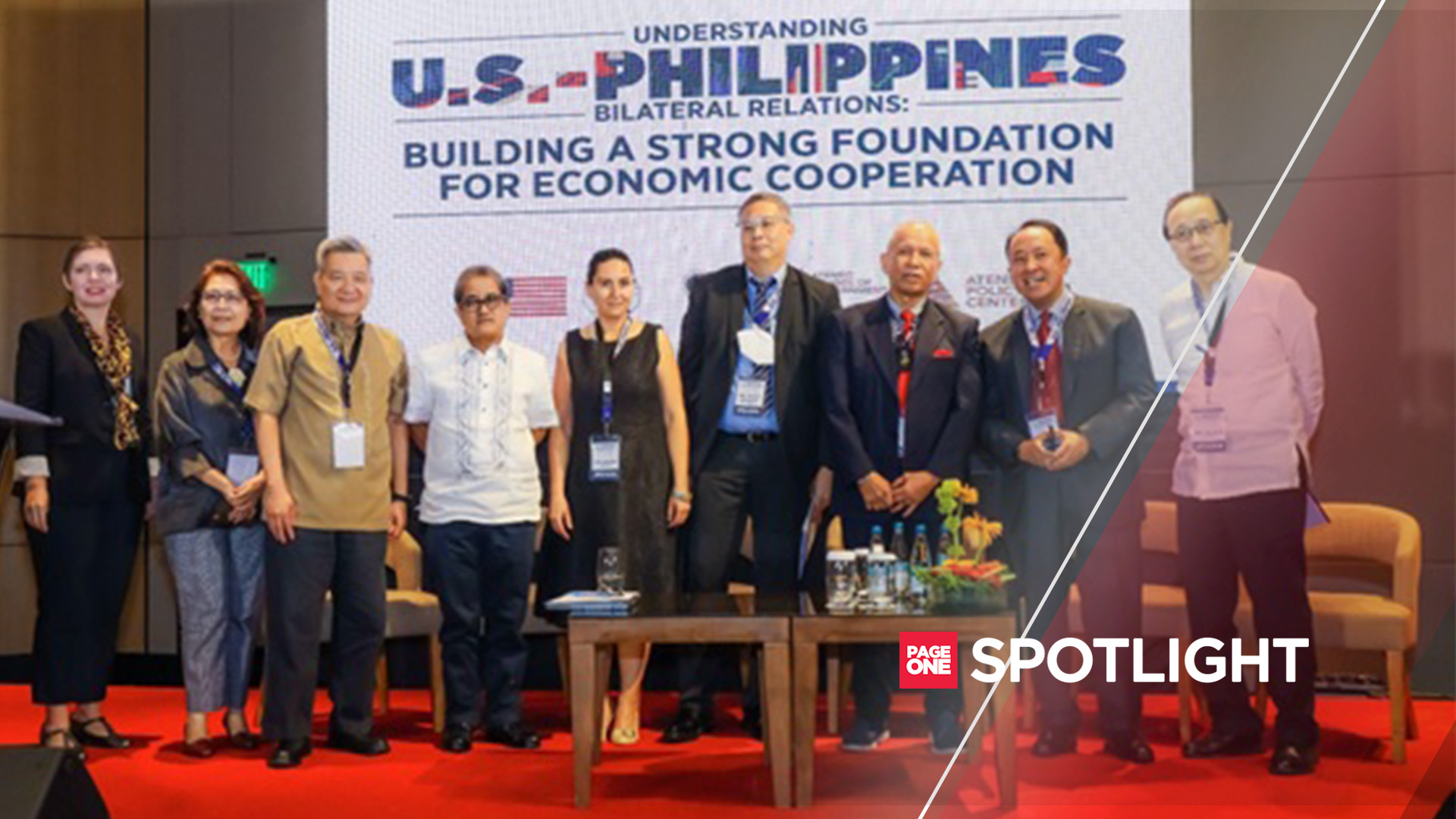The Ateneo School of Government (ASoG), through its public policy think tank Ateneo Policy Center (APC), with the support of the U.S. Embassy in the Philippines, launched the study titled “Understanding US-Philippines Bilateral Relations: Building a Strong Foundation for Economic Cooperation” last April 18, 2023 in Conrad Manila, Pasay City.
The event focused on the economic cooperation between the two countries and discussed the findings of the forthcoming paper authored by ASOG Senior Research Fellows Dr. Philamer Torio and Dr. Nadia Doytch. The study characterizes the nature of US foreign direct investments to the Philippines and quantifies the contributions of US investments to the Philippine economy. Likewise, the policy forum served as an avenue of discourse for key stakeholders – private sector, academia, civil society groups, and government representatives from both nations – to discuss ways to further strengthen the cooperation between both countries.
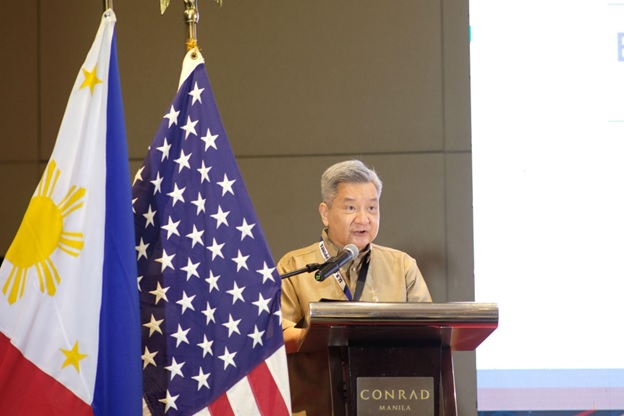
Fr. Roberto Yap, SJ, President of the Ateneo de Manila University, emphasized in his opening remarks “the close bond founded on deep cultural and historical ties” between the Philippines and the United States. He also reiterated that the Ateneo de Manila University “will continue to participate meaningfully in social transformation, including forging strategic partnerships and collaborations effective in addressing the world’s wicked problems”.
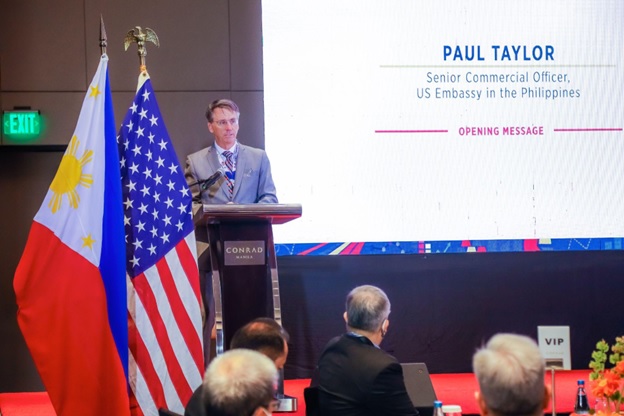
Paul Taylor, Senior Commercial Officer at the US Embassy in the Philippines, outlined the importance of the Philippines to the United States’ economic outlook. “[The] policy forum highlights the centrality of the US-Philippines economic, trade, and commercial relationship,” he said. Mr. Taylor also discussed the work the US and the Philippines have done on the Indo-Pacific Economic Framework (IPEF) for Prosperity, an emerging relationship between the United States and 14 other countries in the Indo-Pacific region. The goal of IPEF is to create economic opportunities, improve labor conditions, and promote sustainability for participating economies.
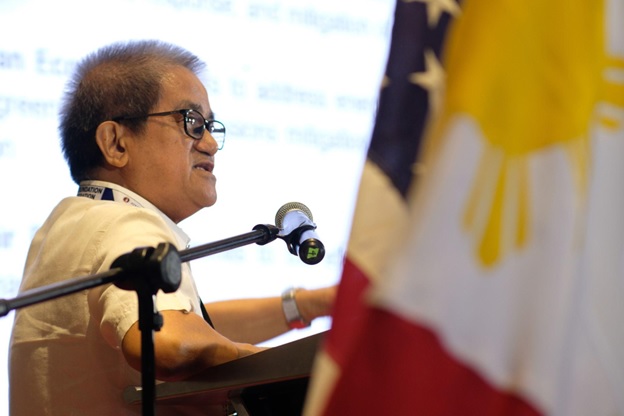
Angelo Benedictos, Director of the Bureau of International Trade Relations at the Department of Trade and Industry, outlined the Philippines’ mechanisms for engagement with the US. These include the Generalized Scheme of Preferences, a US trade preference program benefitting partner nations like the Philippines, and IPEF, among other agreements. Looking ahead, he noted that US-Philippines economic relations may be strengthened by: (i) increasing investments, (ii) addressing the ease of doing business, (iii) considering further policy reforms, (iv) supporting green metals processing, and (v) providing higher level opportunities in electronics and semiconductors, among other initiatives.
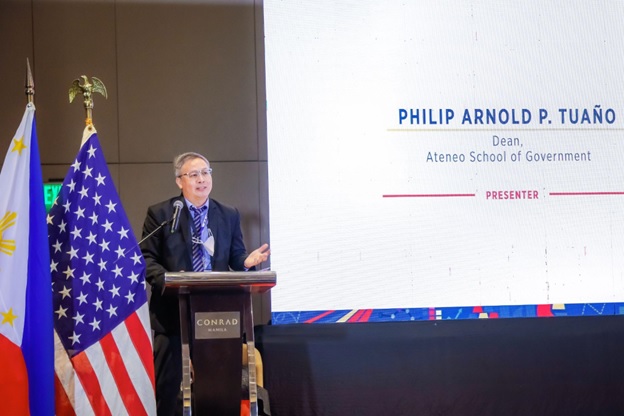
Dr. Philip Arnold Tuaño, Dean of ASoG, and Dr. Nadia Doytch, Senior Research Fellow at ASoG, discussed the nature of US foreign direct investments to the Philippines. Likewise, the longstanding economic relationship between the two countries has redounded to the Philippines’ benefit in the form of increased economic output, quality job creation, consistent trade surpluses, and increased tax revenues.
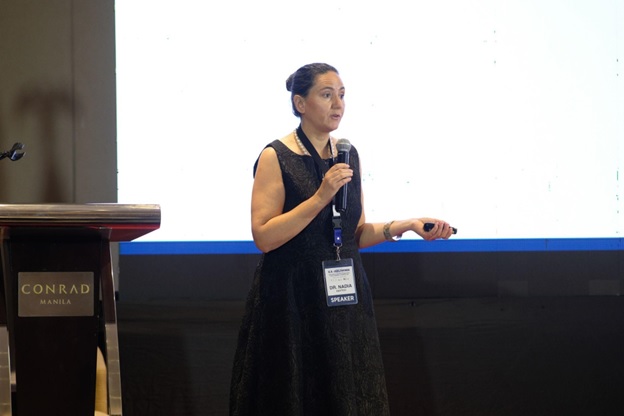
They also reiterated that US-Philippine bilateral relations continue to grow and show greater potential to develop into a more dynamic, progressive, and secured partnership. More recent legislation in the Philippines and the USA has increased opportunities for greater investment, trade and other economic ties between the two countries.
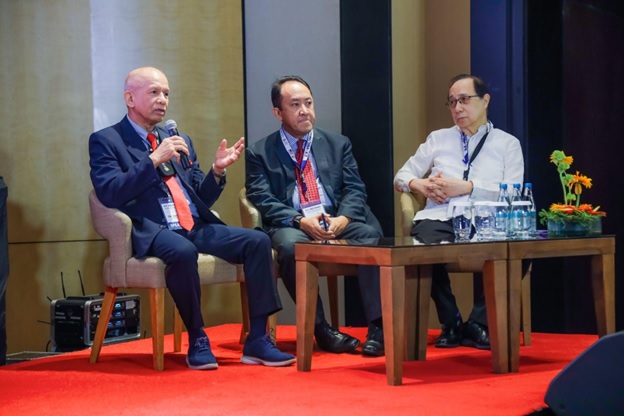
In response to the findings of the study, Jesus Carlos Villaseñor, Chairman of the Trade and Investments Committee of the Management Association of the Philippines, said that the Philippines should consider developing its supply chain capabilities, along with knowledge process outsourcing (KPO). “The real backbone of trade and investment is supply chain, [and] we saw that in the COVID pandemic,” he said. He further elaborated that the Southeast Asian region could be the next supply chain provider for the world, and that the Philippines can provide a niche service for semiconductor production and business process and knowledge process outsourcing. “This has benefits for both parties as we learn more, and we can help small and medium enterprises (SMEs) and large companies become more efficient,” he emphasized.
Dr. Danilo Lachica, President of the Semiconductors and Electronics Industries of the Philippines Inc., discussed the implications of US-Philippines economic relations on semiconductor manufacturing services (SMS) and electronic manufacturing services (EMS) in the country. He also highlighted that SMS, which accounts for about 70% of our electronics exports, is dominated by US companies, demonstrating the importance of US investments to the industry. He also floated the potential of a US semiconductor company building a small lab-scale wafer fabrication facility in the country, enabling the Philippines to prototype semiconductor products and minimizing dependency on other countries. Likewise, such an initiative would provide benefits on cost, cycle time, and security of intellectual property.
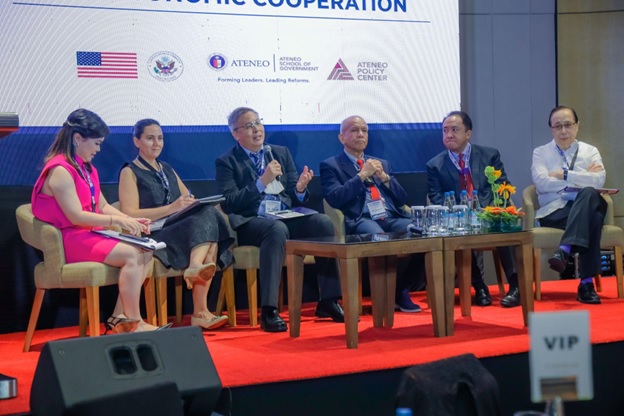
Mr. Calixto Chikiamco, President of the Foundation for Economic Freedom, echoed the sentiment that stronger ties with the US should be forged, founded on shared values. Notwithstanding the growth of US investments to the Philippines in recent years, he cautioned that US investments to the Philippines remains low relative to other countries in the region. He also suggested further trade concessions under IPEF, considering the numerous trade agreements existing in the Asia-Pacific region.
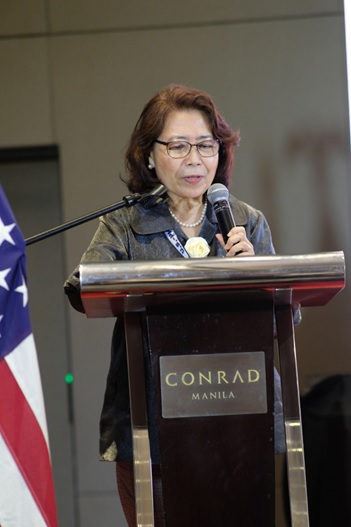
Dr. Maria Luz C. Vilches, Vice President for the Professional Schools of Ateneo de Manila University, officially ended the event with her closing remarks. She stated that “it is crucial that we form partnerships with like-minded organizations and individuals, or even non-like-minded individuals who can challenge our ideas. Collaboration and shared experiences can inspire new ideas and research studies that can improve bilateral relations. Let this forum serve as a catalyst for fostering such partnerships and exploring innovative approaches to transformative change.”
The event was attended by 80+ participants onsite and was live streamed through ASOG’s Facebook page. The recording may be accessed through this link: https://www.facebook.com/ateneosog/videos/158678593503226.

The executive summary of the paper may be accessed through https://bit.ly/Summary_US-PH_EconomicStudy. The full paper will be posted on https://www.ateneo.edu/asog/ateneo-policy-center/research-materials/working-papers.

